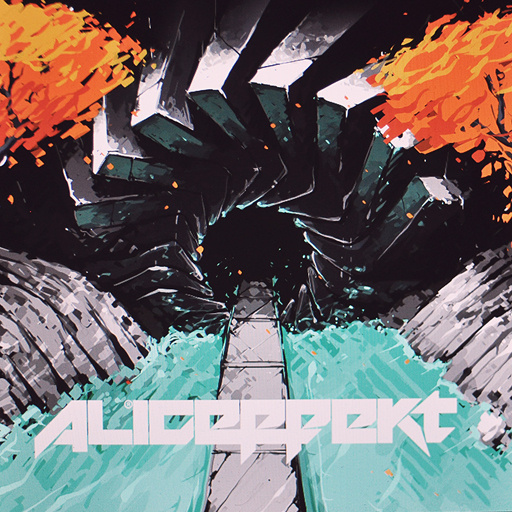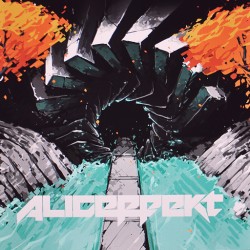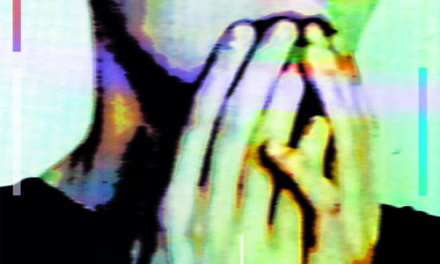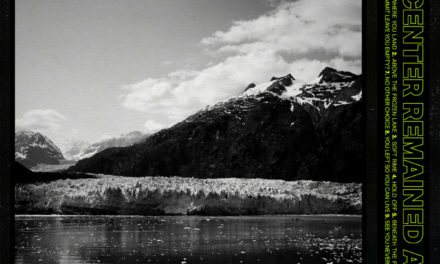Aliceffekt
Dei Dain
Self-Released
There’s something I find pleasantly workmanlike in Aliceffekt’s music. It might be that project mastermind Devine Lu Linvega started it as a complement to his work in animation and illustration (eventually graduating to soundtracking indie games, often of his own design), in his efforts since the project emerged in 2008 I’ve always found appealing sense of function. Whether he’s focusing on heavy, distorted rhythms, melodic soundscapes or glitchy IDM textures, it always feels like it’s in service of something, not aimless noodling. His new record Dei Dain reinforces that impression handily: across a very speedy 10 tracks and 30 minutes it touches on a lot of the ideas that have defined the Montreal artist’s work thus far.
Aliceffekt is nominally a rhythmic noise project (the official Facebook page lists genre as “Melodique Noise”) although I think in the case of Dei Dan the focus is more on the rhythms than the static. “Aetdth, All I see is Yous” certainly has the high BPM and dense mix of a power noise track, although closer inspection finds that it’s the proximity of the beats to the chattering synth bleeps that make up its body, giving the illusion of chaos and noise while actually maintaining a very rigid sense of structure. It’s a clever device that Linvega uses often, especially through the manic four-part “Escape from Kanikule”, wherein each part plays out at roughly the same tempo but with telltale variations in the arrangement of beats and melody to differentiate each movement from the preceding one.
Perhaps in contrast to the frenzied pace of many of these songs, it’s the slowed down numbers with more of an IDM flavour that I think are most interesting. Although it shares much of the cleverly disguised rigidity of the album’s first half, “Our Forgotten Alphabet” allows considerably more space between the notes, allowing simple themes to emerge, run through a few permutations and then fade away. The album’s highpoint “Whiinders/Ver’Tale” relies less on variation, instead establishing itself quickly and executing progression via some changes in instrumentation, including some chiptune sounds and a tasty arpeggiated bassline.
For all the care apparent in the arrangement of these songs, there’s often the sense that production isn’t Linvega’s primary concern. His synth patches are often very similar in timbre to one another, and he tends to keep his mix saturated with reverb. Additionally there are a few spots where some digital artifacting can be heard, perhaps deliberately, although I admit I initially thought one of my speakers was distorting. I don’t think they necessarily detract from “Dei Dain”; the length of the album and its momentum tend to sweep you along before you have time to mentally latch onto anything that might otherwise prove distracting. I guess that’s the thing with Aliceffekt, he’s excellent at highlighting his strengths, and at using them to carry you over some of the rougher patches. That’s admirable, especially in a project so young; Linvega is already ahead of the game, it’s safe to assume that we’re still only seeing the beginning of what he can do.






